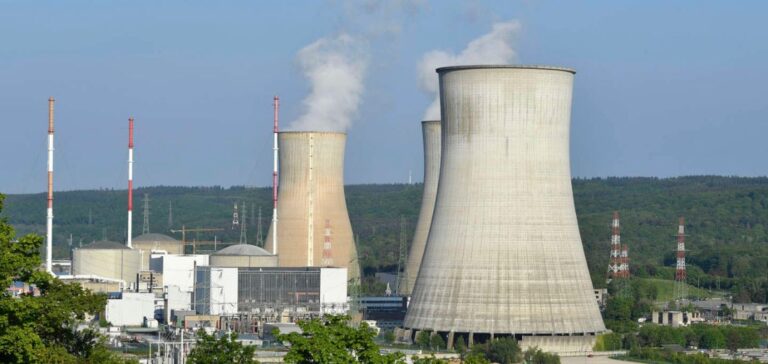On June 29, Engie and the Belgian government signed an interim agreement defining the terms of a ten-year extension to the operation of the two reactors.
Nuclear power in Belgium: Framework agreement for the extension of Engie Electrabel’s power plants.
At the time, a definitive agreement was expected this month. Electrabel – Engie’s Belgian subsidiary – said the framework agreement, signed on July 21, sets the framework for further negotiations between the Belgian state and Electrabel with a view to reaching a final, legally binding agreement, the “transaction document”, in October.
“This agreement confirms what was validated in June (including the lump sum of 15 billion euros ($16.6 billion) for waste management) and establishes the Flex LTO scenario as the baseline scenario for future negotiations,” he noted.
This Flex LTO scenario is subject to certain unavoidable conditions to ensure nuclear safety, including on-time delivery of nuclear fuel from the manufacturer; improvements to the plant design, based on the nuclear safety requirements recently transmitted to Electrabel by the AFCN; qualification of safety-critical equipment to ensure correct operation under all conditions; certain work to ensure the operational safety of existing installations must be carried out within 2 to 4 months in the case of a Flex LTO; and the availability of highly specialized personnel and partner companies must be ensured, given the tight schedule, which is even tighter in the case of a Flex LTO.
“If all these conditions are met, Engie Electrabel currently sees no major obstacles to a restart in November 2025,” the company said.
Expansion of nuclear power plants in Belgium: Safety plan and regulatory changes.
At the government’s request, AFCN has proposed the necessary amendments to the Royal Decree on the safety regulation of nuclear installations to allow the extension of Doel 4 and Tihange 3. AFCN has stated that the necessary safety improvements can be spread over time, and must all be implemented by 2028. In this way, it will also be possible to operate Doel 4 and Tihange 3 in the winter of 2025-2026. FANC has also sent Engie Electrabel a note setting out its expectations regarding the elements to be addressed to prepare and justify the long-term operating life of Doel 4 and Tihange 3, both of which are scheduled to be taken out of service in 2025 for maintenance and inspections after 40 years of operation.
The memorandum specifies the conditions necessary to enable short-term resumption of operations after 40 years of operation, and provides for longer-term continuation of operations for the new operating period.
“Based on the results of the periodic safety review, the necessary measures to continue operation with a level of safety equivalent to that achieved to date, must be carried out before restart,” FANC said.
“As regards the other actions identified (with the aim of further improving the level of safety), these will be included in an action plan to be carried out within three years, subject to duly justified exceptions. These other measures are linked to the changes needed to meet new regulatory requirements or to harmonize current practices, standards and norms as far as possible.”
Belgium: Engie Electrabel plans measures to guarantee nuclear safety.
Engie Electrabel is currently developing action plans and associated timetables to improve safety. The AFCC has indicated that it will have to approve them, and will ensure that priority is given to the activities most important to nuclear safety.
“In order to prepare for a long-term operation, particular attention is paid to several aspects in this framework,” FANC said.
“These include verification of prerequisites, human factors aspects (skills, knowledge and behavior), aging management and design improvement. For the latter, regulatory requirements will have to be taken into account.”
He added: “This approach has been defined taking into account the needs to ensure security of electricity supply during the winter periods of 2025-2026 and 2026-2027 as well as the need to guarantee and demonstrate that the level of security corresponds to the regulations in force.”
Under a plan announced by the Belgian coalition government in December 2021, Doel 3 was closed in September 2022, while Tihange 2 closed at the end of January this year. The new Doel 4 and Tihange 3 would be closed by 2025. However, in March of last year, the Belgian government decided to enter into talks with Electrabel with a view to extending the operation of Doel 4 and Tihange 3, thereby retaining 2 GWe of nuclear generation capacity.






















